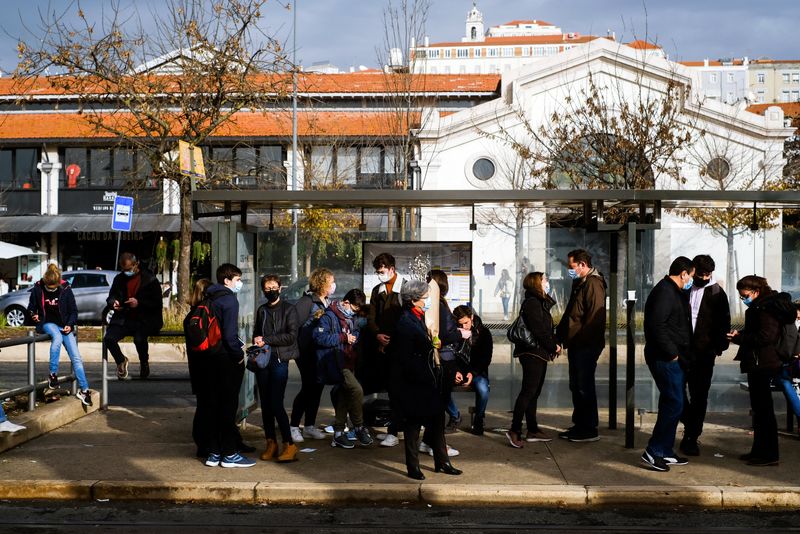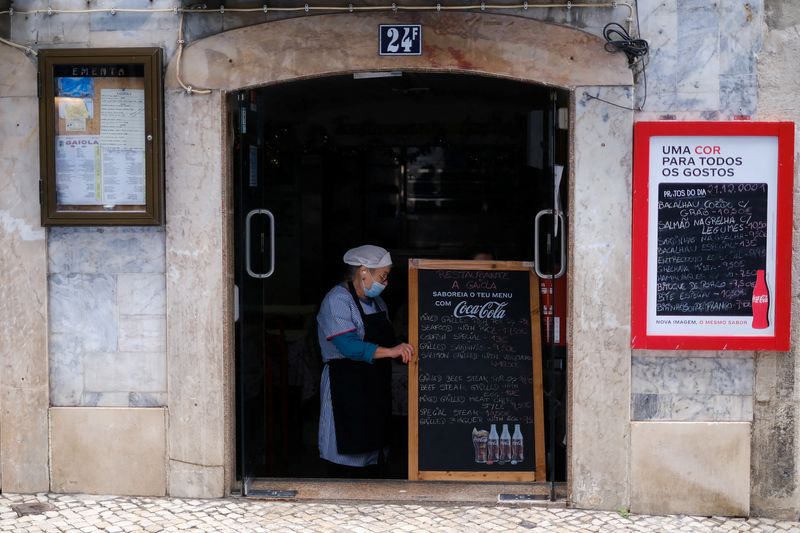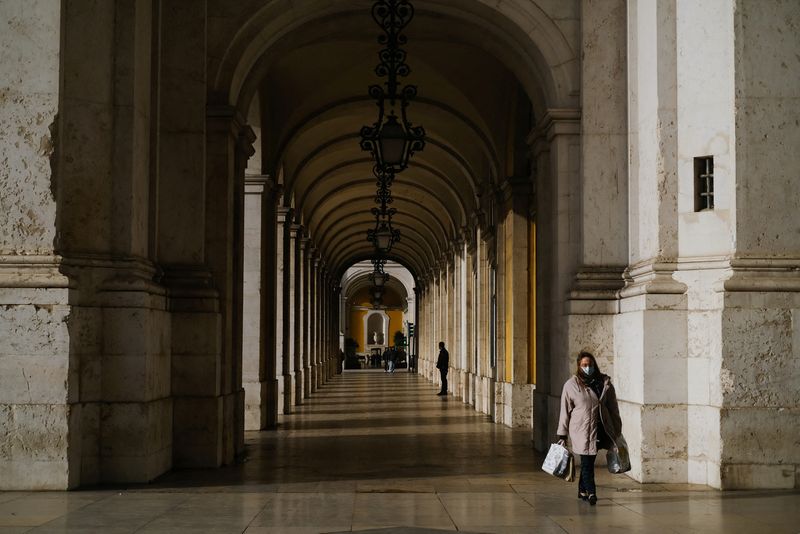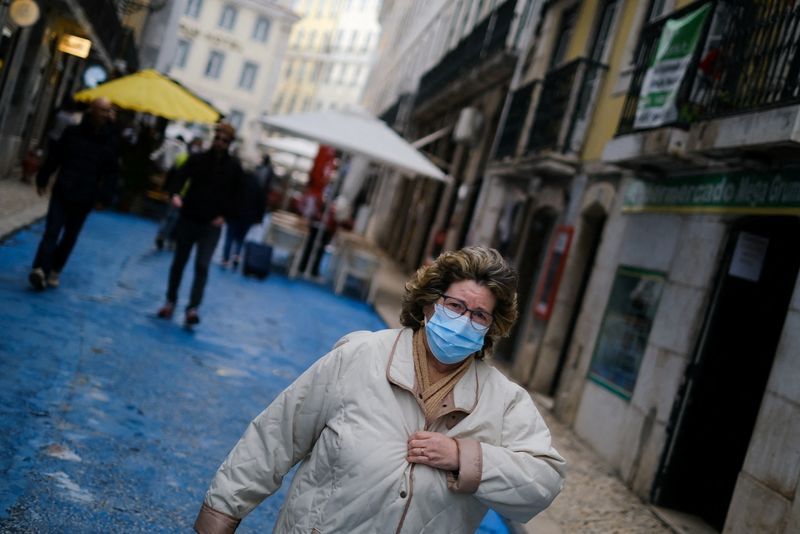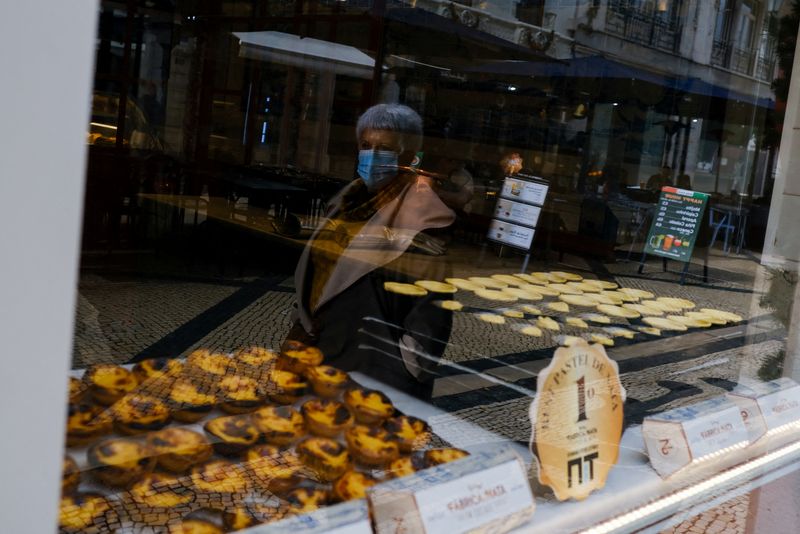LISBON (Reuters) -Portugal on Tuesday ordered nightclubs and bars to close and told people to work from home for at least two weeks starting on Saturday to control the spread of COVID-19 over the holiday period.
“This still isn’t the normal Christmas we are used to,” Prime Minister Antonio Costa told a news conference. “If we do not adopt these measures now, the consequences on everyone’s lives will be much worse after Christmas and the New Year.”
Costa also announced capacity restrictions at stores and said a negative coronavirus test would now be required to stay at hotels or go to events.
Authorities will also limit outdoor gatherings to 10 people per group on New Year’s Eve, when a negative test will be needed to enter restaurants, casinos or attend parties in public spaces, Costa said.
Most of the measures announced by Costa were initially meant to come into force in early January but the current pandemic situation forced the government to implement them ahead of time, he added.
Portugal, which has one of the world’s highest rates of vaccination against COVID-19 with around 87% of its 10 million population fully inoculated, is facing a surge in infections along with the rest of Europe, in part due to the fast-spreading Omicron variant.
Close to 50% of new coronavirus cases in Portugal are from the Omicron variant, the national health institute said in a report on Tuesday.
The country reported 5,754 new COVID-19 cases on Tuesday, returning to levels last seen in February, when it faced its toughest battle against the illness, but deaths and hospitalisations remain low compared to that period.
Health Minister Marta Temido said last week Omicron infections were doubling every two days and could account for 80% of all new cases by the end of the month.
(Reporting by Catarina Demony and Sérgio GonçalvesEditing by Andrei Khalip and Mark Potter)

